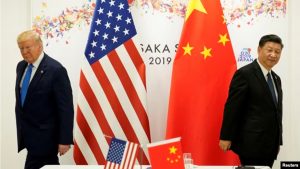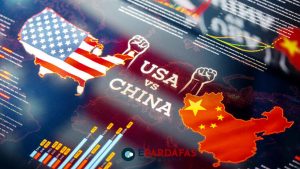
Trump Vows More Tariffs on Chinese Goods if Re-elected

In a recent interview with Fox News, former US President Donald Trump declared his intentions to escalate trade tensions with China if he secures victory in the upcoming US election scheduled for November. Trump stated that he would consider imposing tariffs exceeding 60% on Chinese imports, emphasizing the necessity of such measures.
Trump, who currently leads the Republican party’s presidential aspirations, is embroiled in legal controversies, including allegations of attempting to subvert the 2020 election results, which he vehemently denies. Despite these challenges, he remains vocal about his stance on Chinese trade practices, citing unfairness and intellectual property theft as key concerns.
Addressing his stance, Trump expressed a desire for improved relations with China but insisted on rectifying what he perceives as China’s exploitation of the United States. Throughout his presidency, Trump initiated a confrontational trade war with China, imposing tariffs on a wide array of Chinese products, ranging from seafood to chemicals.
The tit-for-tat retaliatory measures between the two economic giants have persisted, with Beijing responding by levying tariffs on US imports such as soybeans, wheat, and poultry. Trump’s latest remarks signal an escalation from his previous proposal of a universal 10% tariff on all imports into the US.
While Trump’s aggressive trade policies have garnered criticism for their impact on prices and competitiveness, the current Biden administration has largely maintained these tariffs. Treasury Secretary Janet Yellen cautioned against Trump’s proposed tariff hikes, warning of increased costs for American businesses and consumers across various sectors.
The US-China economic relationship, a cornerstone of global trade for over two decades, faces growing scrutiny from bipartisan lawmakers. A recent House committee report advocated for even higher tariffs on Chinese imports and proposed restrictions on Chinese investments in the US, reflecting a broader sentiment toward reshaping US-China economic ties.
As the election season unfolds, Trump’s vow to intensify tariffs on Chinese goods adds a new dimension to the discourse surrounding US trade policy and its implications for the global economy.












Comments